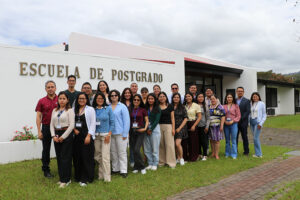Research highlights the positive impact of bee pollination on coffee quality
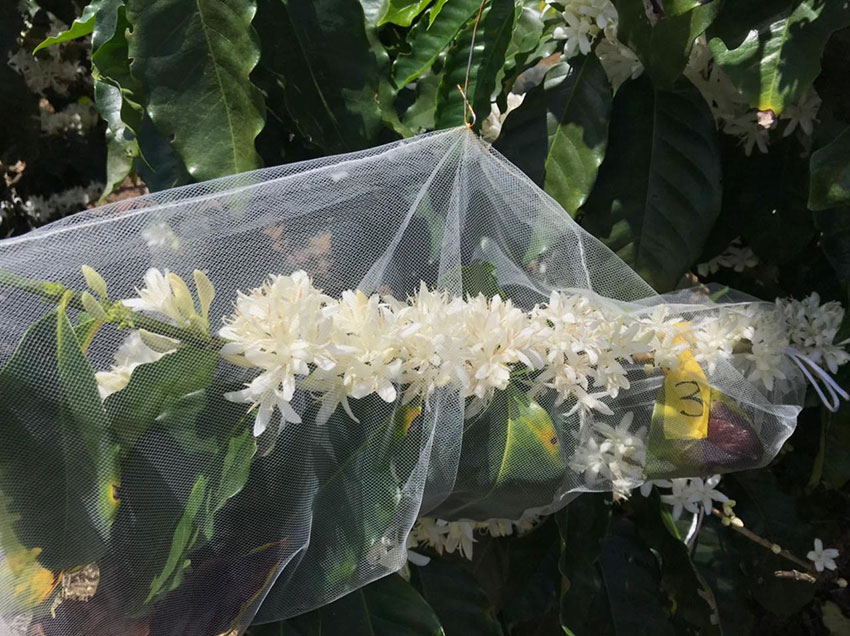
- Researchers from the Forests and Biodiversity in Productive Landscapes Unit actively participated in a study suggesting that conserving or restoring bee habitats on coffee farms can improve coffee quality.
A recent scientific study, published in the journal Agriculture, Ecosystems and Environment, has shed light on the essential role bees play in enhancing coffee quality, a vital crop for the economy of many tropical countries.
This pioneering study demonstrates that bee pollination not only increases coffee yields but also improves key quality attributes, such as aroma, which could translate into greater economic benefits for producers.
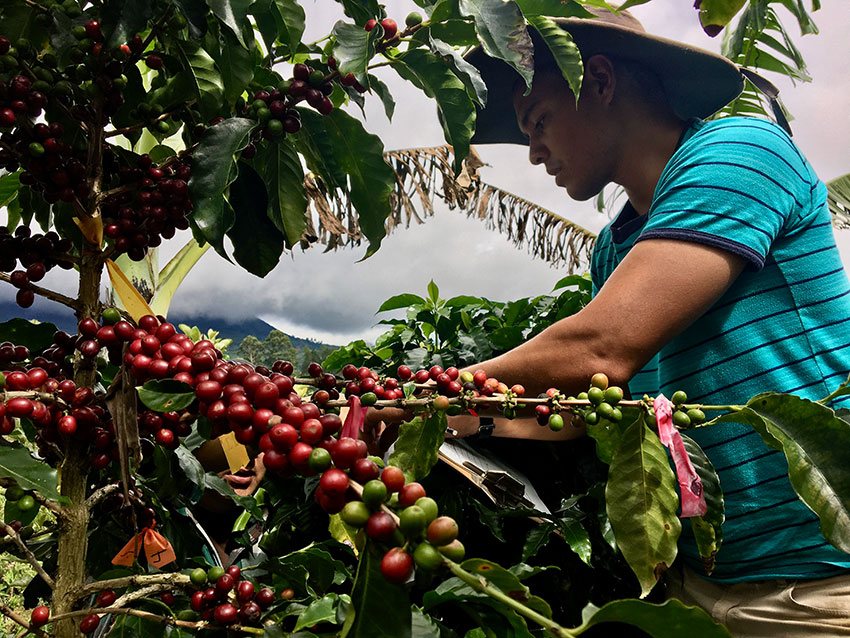
The study was led by Natalia Aristizábal from the Gund Institute for Environment de la Universidad de Vermontand was conducted in collaboration with a multidisciplinary team of researchers. This team included Adina Chain Guadarrama and Alejandra Martínez-Salinas from the Forests and Biodiversity in Productive Landscapes Unit at CATIE (Tropical Agricultural Research and Higher Education Center), Silvia Mora Mena from the University of Costa Rica, Juan Murillo from the Costa Rican Institute of Technology, Jimmy Porras from CoopeTarrazú, Danny Castillo from El Fermentista in Tarrazú, and Taylor H. Ricketts from the Gund Institute for Environment.
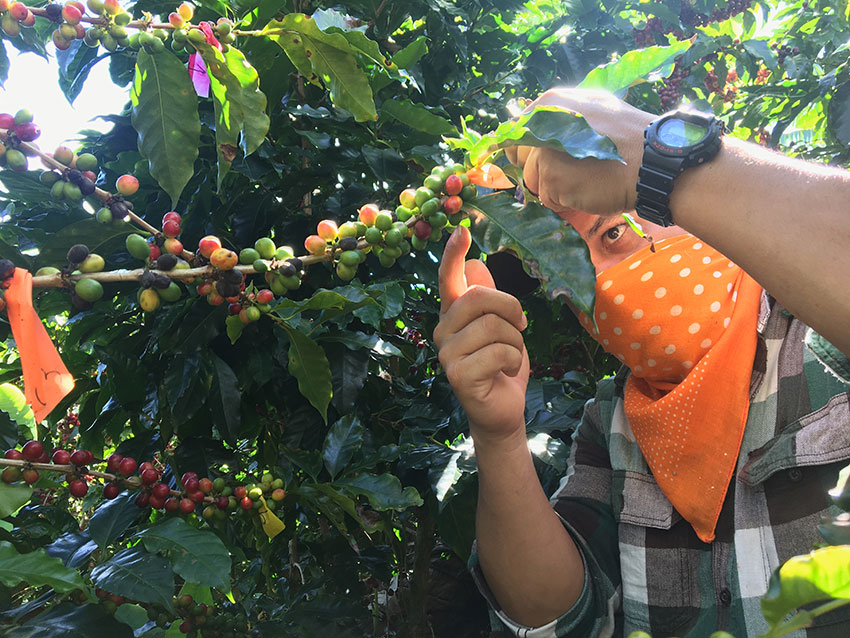
Key findings
Traditionally, crop pollination research has focused on how pollination affects productivity metrics such as the number and size of fruits. However, the study led by Aristizábal and her team is one of the first to experimentally evaluate the impact of pollination on coffee quality, taking into account attributes like cup profile and aroma. The research involved conducting bee exclusion experiments on coffee plants at a farm owned by CoopeTarrazú, the largest coffee cooperative in Costa Rica, to compare the results between bee-pollinated and non-pollinated branches.
The study’s results were significant and highlighted a delicate balance between quantity and quality. Bee-pollinated plants showed an 8.5% increase in fruit set, but these fruits weighed 7.4% less compared to fruits from self-pollinated plants. In terms of quality, bee-pollinated coffee showed a 2% improvement in aroma scores, a highly valued attribute in the specialty coffee market, although a slight decrease in cup balance was also observed.
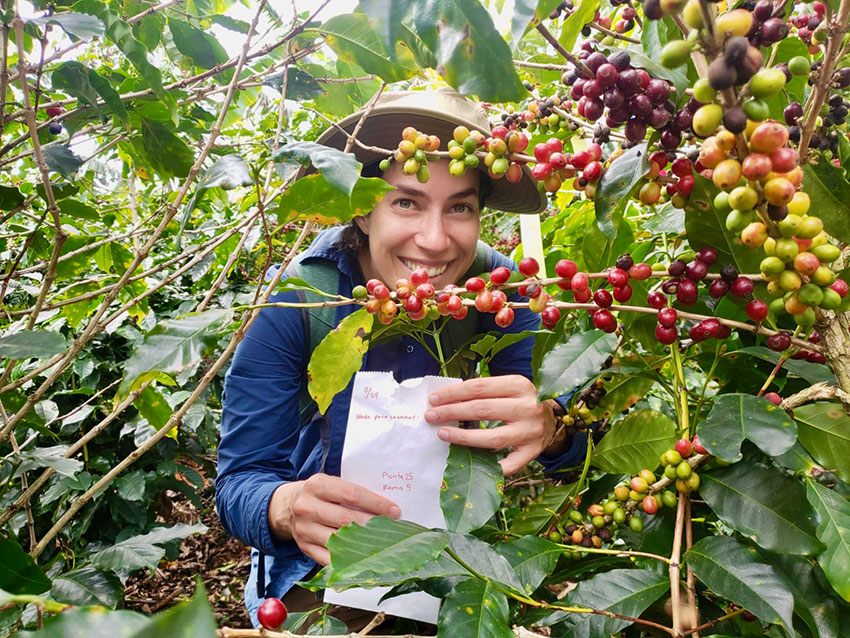
Implications for coffee farmers and conservation
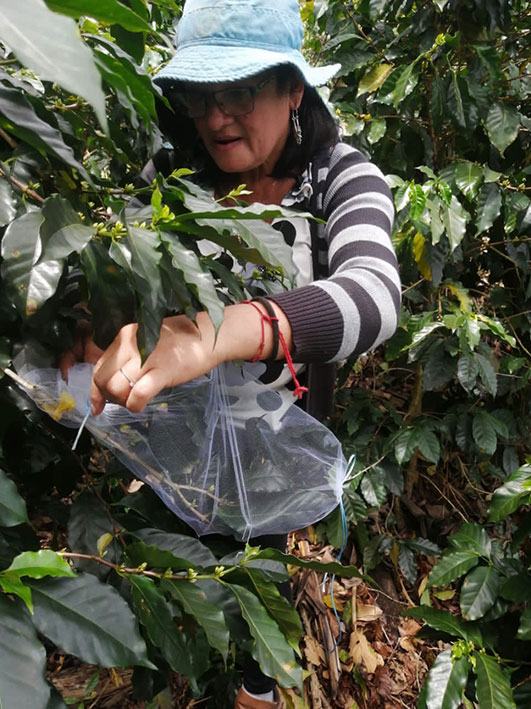
The findings of this research, along with other studies by the same authors on the role of biodiversity in providing ecosystem regulation services (Chain Guadarrama et al. 2019, Martínez-Salinas et al. 2022), have the potential to transform coffee management practices in producing regions of Central America and Mexico. The improvement in coffee quality associated with bee pollination suggests that maintaining or restoring pollinator habitats on farms could be an effective strategy not only to increase farmers’ income through the specialty coffee market but also to promote biodiversity conservation.
Additionally, the possibility of introducing certification labels such as "bee-friendly coffee" could add value to small farmers' products, attracting consumers willing to pay more for products that support environmentally sustainable practices. At a time when the coffee industry faces challenges such as climate change and environmental degradation, this study offers a new perspective on how ecosystem services can be integrated into agricultural practices for the mutual benefit of producers and the environment.
These results could provide a new avenue for coffee growers seeking to access high-value markets while contributing to biodiversity conservation.
CATIE’s participation in this study once again demonstrates its leadership in applied research for sustainability and quality of life in the tropics, contributing to the creation of knowledge that drives innovation and improves agricultural practices in the region.
More information:
Natalia Aristizábal Uribe
Natalia.Aristizabal@uvm.edu
Adina Chain Guadarrama
Scientific Researcher UBBPP
achain@catie.ac.cr
Alejandra Martínez-Salinas
Coordinator
Forests and Biodiversity in Productive Landscapes Unit
CATIE
amartinez@catie.ac.cr
Written by:
Esteban Rodríguez Zamora
Communicator
Information Technology and Communication
CATIE
esteban.rodriguez@catie.ac.cr


